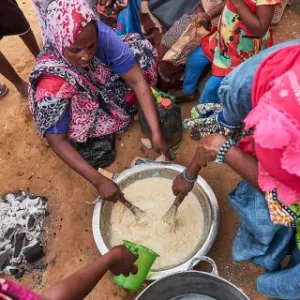The response to the global food crisis must address the needs of women and girls
The response to the global food crisis must address the needs of women and girls by Elizabeth Bryan and Claudia Ringler Open Access | CC-BY-4.0 Development agencies are pouring in billions of dollars to address the global food crisis exacerbated by Russia’s war on Ukraine. The World Bank, the G7, the European Union’s Team Europe, and the United States have collectively

The response to the global food crisis must address the needs of women and girls
The response to the global food crisis must address the needs of women and girls
Development agencies are pouring in billions of dollars to address the global food crisis exacerbated by Russia’s war on Ukraine. The World Bank, the G7, the European Union’s Team Europe, and the United States have collectively pledged more than $40 billion to avert food and humanitarian crises. Yet this much-needed assistance carries its own risks. Without a gender lens, the proposed measures will fail to meet the specific needs of women and girls and might worsen existing gender inequalities. The current crisis presents an opportunity to design gender-responsive programs that buffer women and girls against hardships in the short term and tackle entrenched gender inequalities while building resilience to future shocks over the long term.
It is a perilous moment for women and girls around the world. The COVID-19 pandemic already pushed an estimated additional 47 million girls and women into extreme poverty, reversing decades of progress. And in 2021, at least 150 million more women than men were experiencing food insecurity—with the gender gap continuing to grow. Crises pose particular risks to girls, leading to them to drop out of school at higher rates, and increasing the incidence of gender-based violence including early or forced marriage, and economic or sexual exploitation.

